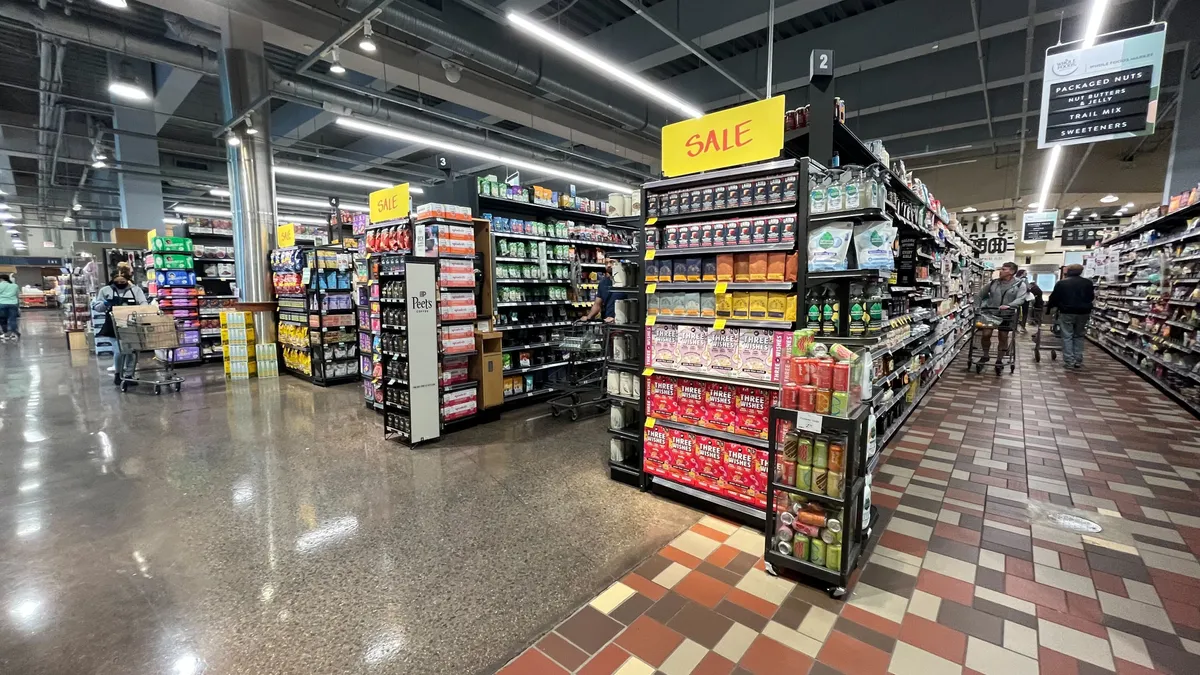Dive Brief:
- In a research note, four analysts with Wolfe Research noted low staffing levels and poor execution are negatively effecting stores, according to The Street. In Houston, the analysts noted significant out-of-stocks in frozen meals and dry grocery at Kroger and Target stores, while Wal-Mart stores had poorly stocked produce departments.
- In conversations with employees, the analysts found that finding and retaining good workers is a challenge. But their report also notes retailers are reducing labor costs, and that this “can compound the sales problems over time.”
- The average retail worker earned $21,800 in 2015, compared to $23,200 in 2005.
Dive Insight:
Good retail workers are difficult to find. Many see their job as temporary, and even fewer feel personally invested in the companies they work for. And to be fair, the work can be tough, requiring hours of standing at a register, moving heavy boxes of product and dealing with potentially difficult customers.
For all these challenges, retailers still must rely on their employees to execute critical strategies and to maintain the company’s image on a daily basis. Because of this, some grocers have raised wages and even invested in perks such as tuition reimbursement for employees.
But in a low-margin, highly competitive industry, wages are often less than ideal, and some chains are reducing their staffing levels to save money. The results can be financially beneficial in the short term, but as the report from Wolfe Research points out, they can muddle sales by negatively impacting the store experience.
The analysts’ findings in Houston are somewhat surprising given the importance of the booming market to grocery operators right now. Kroger, which is known for a high level of execution, and Wal-Mart, which recently increased wages for its workers and touted the happiness of its employees as key to its recent success, are particularly notable.
Corporate culture, training and store-level management are crucial to keeping employees happy and productive. But as retailers continue to weigh labor costs against profitability, many also are considering increasing worker pay. Doing so doesn’t guarantee a better store experience across the chain, but it can certainly help. Just ask Costco, which pays its employees an average of $21 an hour and is defying the declines seen elsewhere in the retail industry.










